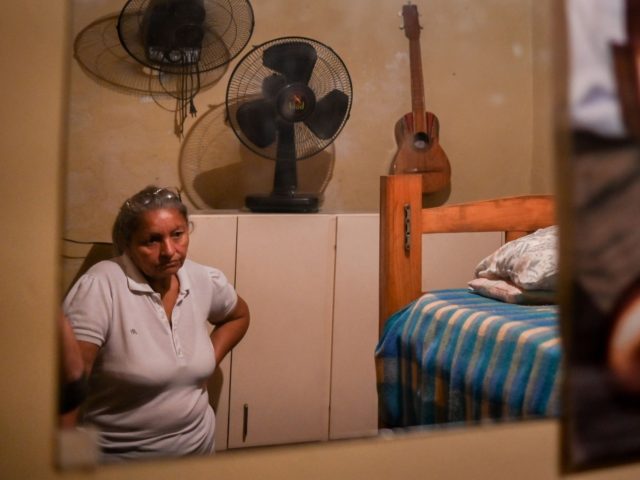A poll published by the Venezuelan firm Meganálisis this weekend found the average age of a head of household in Venezuela is 60.53 years, about the same age as the nation’s retirement age for men.
The Venezuelan socialist regime allows men to begin collecting their retirement pensions at 60 and women at 55, meaning the average age of heads of household is over the age of retirement regardless of the gender of the person in question. The head of a household is typically considered the family’s breadwinner, responsible for most of the family’s income, meaning many elder Venezuelans have been forced to return to work to survive.
The extremely high average age of a Venezuelan breadwinner appears largely to be the product of a mass exodus of the nation’s citizens under socialism, totaling over 5 million people and largely consisting of individuals of workforce age. Meganálisis also found that the majority of Venezuelan households have lost at least one member to exile.
Meganálisis conducts a semi-monthly poll nationwide, typically asking Venezuelans about their experiences with socialism, opinions about the regime of dictator Nicolás Maduro, and thoughts on the nation’s infrastructure and social programs. The poll published this weekend was conducted between May 20 and May 28 and polled slightly over 1,000 people in all of Venezuela’s 24 states.
Meganálisis noted in its poll results that 64.3 percent of respondents said they had a relative who used to live in their home but has fled the country. While the average age of a Venezuelan head of household is 60.53 years, the youngest age the poll found for someone in that role was 22. The oldest head of household the poll found was 97 years old.
“Due to the exit from the country of millions of young people, there has been a considerable increase in the age of the heads of household, which has forced our grandparents who stay in Venezuela to return to the role,” Rubén Chirino Leañez, the vice president and CEO of Meganálisis, told Breitbart News this weekend. “Many have returned to work after retirement [and] in many cases they have become parents once again, just that this time it is of their grandchildren left to their care by their young migrant parents.”
Chirino noted that there are few statistical studies on the effects of socialism on the elderly and that the press in the country, now almost universally state-controlled or -coerced, largely ignore the problem.
According to the United Nations Office of the High Commissioner for Refugees (UNHCR), 5.4 million Venezuelans have fled the country since they voted in a socialist government in 1998. In comparison, about 6.6 million Syrians have fled the country in the past decade as a result of that nation’s civil war. The vast majority of those fleeing Venezuela left following the death of late dictator Hugo Chávez and his replacement with current dictator Nicolás Maduro. Maduro took power in 2013; the UNHCR documented an 8000-percent increase in the number of Venezuelan nationals seeking refugee status in other nations since 2014.
“The majority of refugees and migrants from Venezuela arriving in neighbouring countries are families with children, pregnant women, elderly people and people with disabilities,” according to the UNHCR.
The United States has seen a surge in the number of Venezuelan nationals trying to enter the country through its southern border during the tenure of President Joe Biden, who recently granted Venezuelan citizens Temporary Protected Status (TPS). Border towns typically used to identifying nationals from Mexico or Central America, the Department of Homeland Security confirmed in May, are now documenting a large number of refugees from Venezuela.
Food insecurity is among the top problems forcing Venezuelans to leave the country. A study published by the Venezuelan Observatory for Food Security and Nutrition (OVSAN) in April found that 91 percent of Venezuelans were food insecure, meaning they did not know if they would be able to acquire their next meal. OVSAN also found that 55 percent of Venezuelans “restrict their consumption of food” to ensure they have something for the future and a similar 56 percent are using up their life savings to buy food. Nearly 80 percent of respondents told OVSAN that they are employing what they would describe as “survival tactics” to acquire food.
The practice of scavenging in piles of garbage – particularly in Caracas, which boasts particularly poor waste management – for food became commonplace in Venezuela during the Maduro era. The overwhelming number of Venezuelans have experienced involuntary weight loss under his tenure, a phenomenon dubbed the “Maduro diet.” Maduro himself, who notably appears to have escaped the results of the phenomenon, has joked about the “Maduro diet” on television in the past.
The Meganálisis poll released this weekend yielded damning results against Maduro’s main anti-hunger program, the Local Committees for Supply and Production (CLAP). The regime distributes CLAP boxes – often with expired or visibly rancid, inedible food – to its poorest citizens in theory; in practice, Maduro’s most loyal supporters reportedly have the best access to food.
The average respondent to Meganálisis’ survey said their CLAP boxes contained an average of a little over 21 pounds of food. 27.2 percent of respondents, the plurality, said they received a box every two months. The second-largest group, 23.7 percent, said they “never” received CLAP boxes. In other words, a 21-pound box of food is meant to feed an entire household for two months. Meganálsis did not correlate the average box weight with any particular household size. The average Venezuelans family, however, consists of four people.
Follow Frances Martel on Facebook and Twitter.

COMMENTS
Please let us know if you're having issues with commenting.